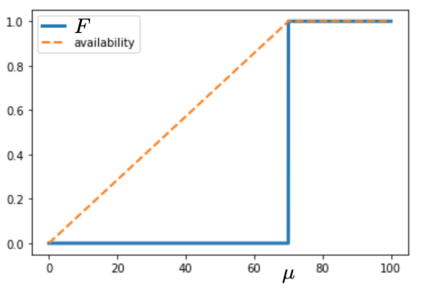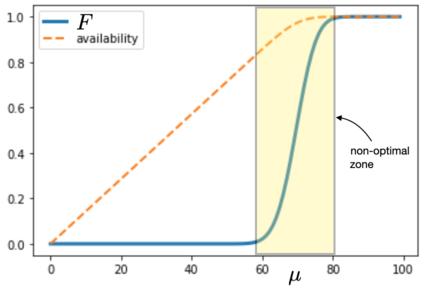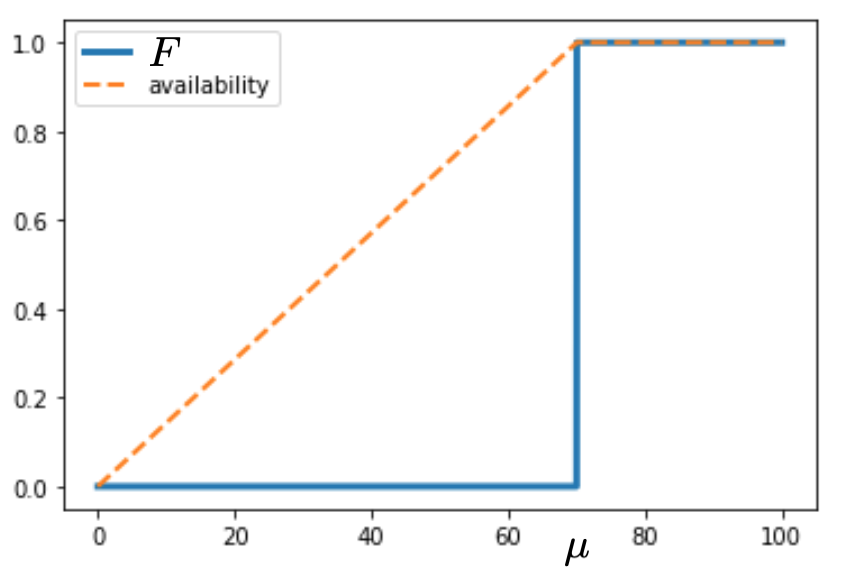We consider a fairness problem in resource allocation where multiple groups demand resources from a common source with the total fixed amount. The general model was introduced by Elzayn et al. [FAT*'19]. We follow Donahue and Kleinberg [FAT*'20] who considered the case when the demand distribution is known. We show that for many common demand distributions that satisfy sharp lower tail inequalities, a natural allocation that provides resources proportional to each group's average demand performs very well. More specifically, this natural allocation is approximately fair and efficient (i.e., it provides near maximum utilization). We also show that, when small amount of unfairness is allowed, the Price of Fairness (PoF), in this case, is close to 1.
翻译:我们考虑的是资源分配的公平问题,即多个群体从共同来源和固定总金额中要求资源,而总体模式是由Elzayn等人[FAT*'19]提出的,我们遵循在了解需求分配情况时审议案件的Donahue和Kleinberg[FAT*'20],我们表明,对于许多满足急剧减少的尾部不平等的共同需求分配,提供与每个群体平均需求相称的资源的自然分配效果很好。更具体地说,这种自然分配大约是公平和有效的(即它几乎提供了最大限度的利用 ) 。 我们还表明,如果允许少量不公平,在这种情况下,公平价格接近于1。






